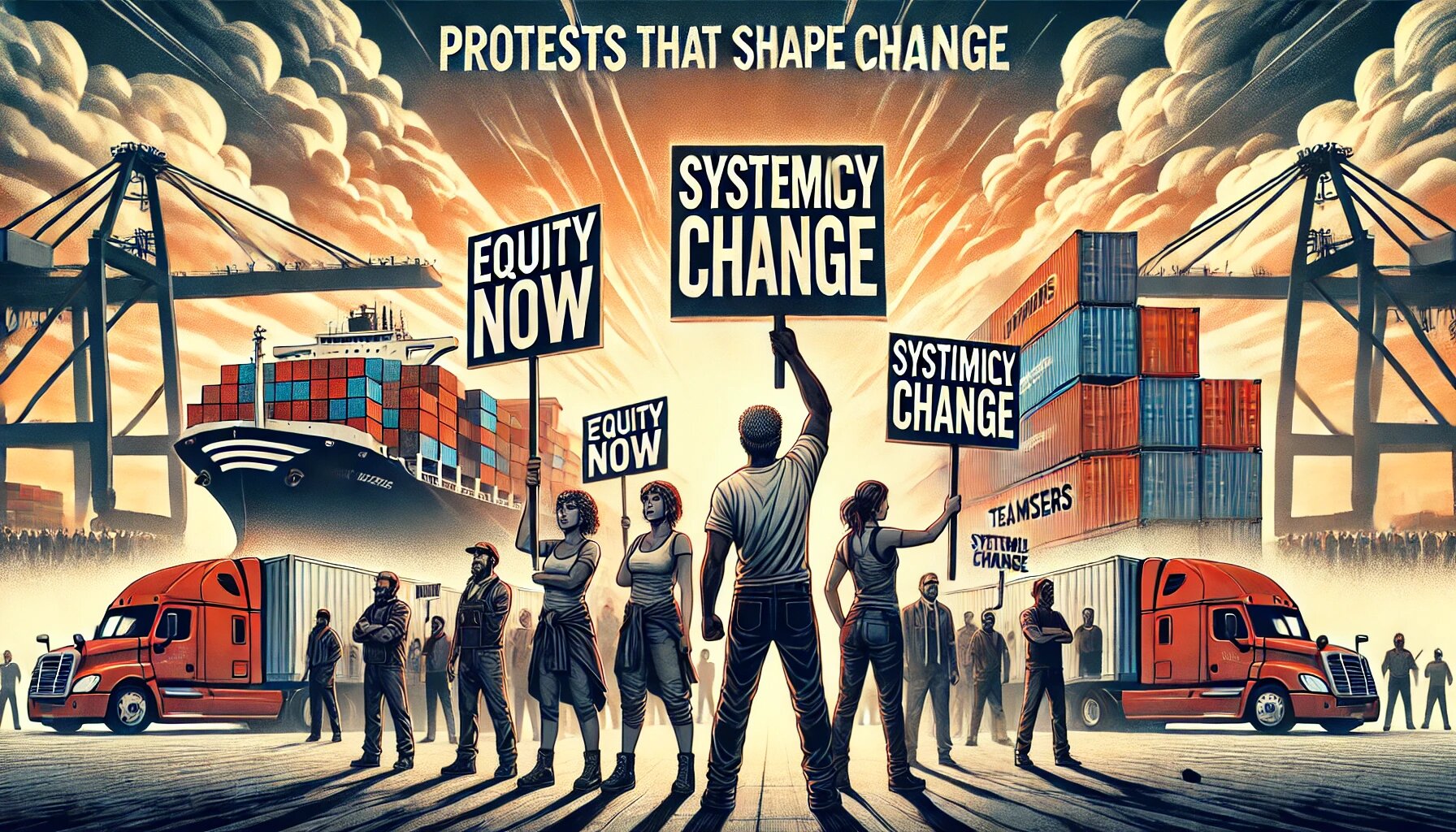A Transition to New Frontlines

The fight for equity has taken on new dimensions in recent months with two pivotal labor protests demanding attention. Dock workers weathering the aftermath of a hurricane season and the Brotherhood of Teamsters striking amid the holiday rush. These events are not isolated grievances; they represent a deeper unrest within industries where workers face systemic neglect and a lack of acknowledgment for their indispensable roles. Protests That Shape Change have always been a barometer of dissatisfaction, challenging entrenched systems and igniting reform.
As this new wave of protests unfolds, it builds upon historical cycles of activism, highlighting recurring patterns in the struggle for fairness. This series moves forward from our previous exploration of protest cycles, expanding into specific movements that emphasize systemic failures and the need for accountability. When examining the dock workers and Teamsters grievances, we uncover how these protests serve as both individual demands for justice and broader calls for systemic reform.
Recent Protests That Shape Change
The dock workers strike emerged as a response to compounding pressures exacerbated by the challenges of hurricane recovery. As frontline workers in global logistics, their labor ensures the seamless movement of goods, yet they face grueling conditions, outdated safety measures, and minimal recognition. Their collective action brought these issues to the forefront, and this forced industries to address their dependence on undervalued labor.
On the other hand, the Teamsters strike was timed to disrupt operations during the busiest season of the year, amplifying their demands for better wages, reasonable workloads, and safer conditions. The logistics industry’s heavy reliance on their work was highlighted during the holiday rush, emphasizing the human toll of efficiency-driven practices.
These protests reveal shared frustrations across industries, rooted in systems that prioritize profits over people. They also provide a foundation for examining parallels with broader advocacy efforts, such as those judicial reform in family courts.


Building Momentum with Protest That Shape Change
Labor movements have historically succeeded in sparking change when they align with broader societal frustrations. The recent dock workers and Teamsters strikes are no exception. They not only highlight industry-specific grievances but also resonate with workers across sectors who face similar issues of neglect and inequity.
The key to their impact lies in the power of unity. Strikes disrupt the status quo, forcing decision-makers to engage with issues they might otherwise ignore. When standing together workers can create momentum that extends beyond their immediate demands, fostering a broader conversation about systemic reform.
Connecting Protest That Shape Change to Advocacy
As we analyze these labor movements, it becomes clear that their struggles mirror challenges faced in other systemic reforms. In judicial systems, families often encounter dismissive authority figures and inequitable practices that parallel the neglect experienced by laborers. At Xtrusion Solution, we draw these connections to build a united front for equity and accountability.
The shared themes of undervaluation, systemic inefficiencies, and resistance to change underscore the importance of cross-sector collaboration. And by amplifying the voices of those fighting for fairness in workplaces or courtrooms, we strengthen the foundation for a meaningful change.


Looking Forward To Protests That Shape Change
This blog sets the stage for a deeper exploration of the dock workers and Teamsters who unite and protest. By focusing on their unique grievances and the broader implications of their actions, we aim to inspire a collective understanding of how protests shape change.
Protests are not just about immediate demands; they are catalysts for addressing systemic issues that affect us all. As this series progresses, we’ll uncover how these movements challenge authority and push for accountability in ways that resonate far beyond their origins.

